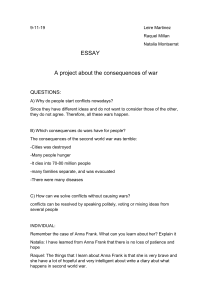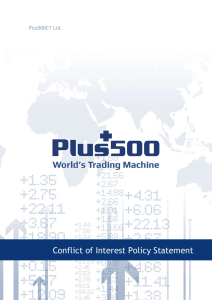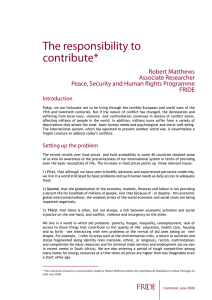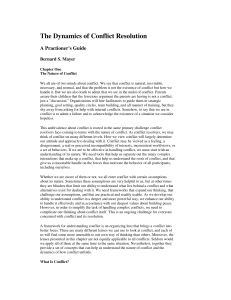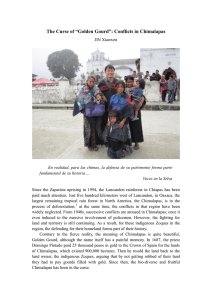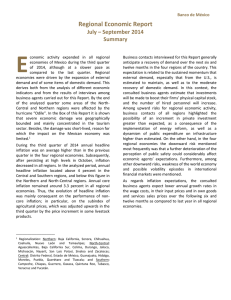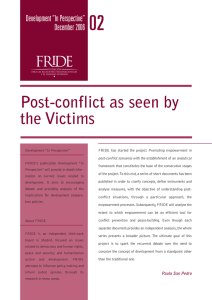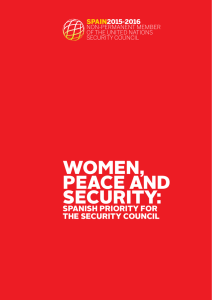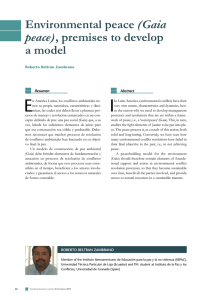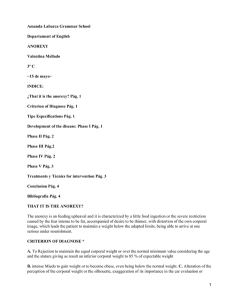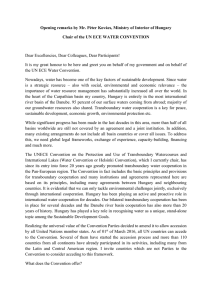Security Council Director: Paola Ivonne Caceres Moderator: Mayela
Anuncio
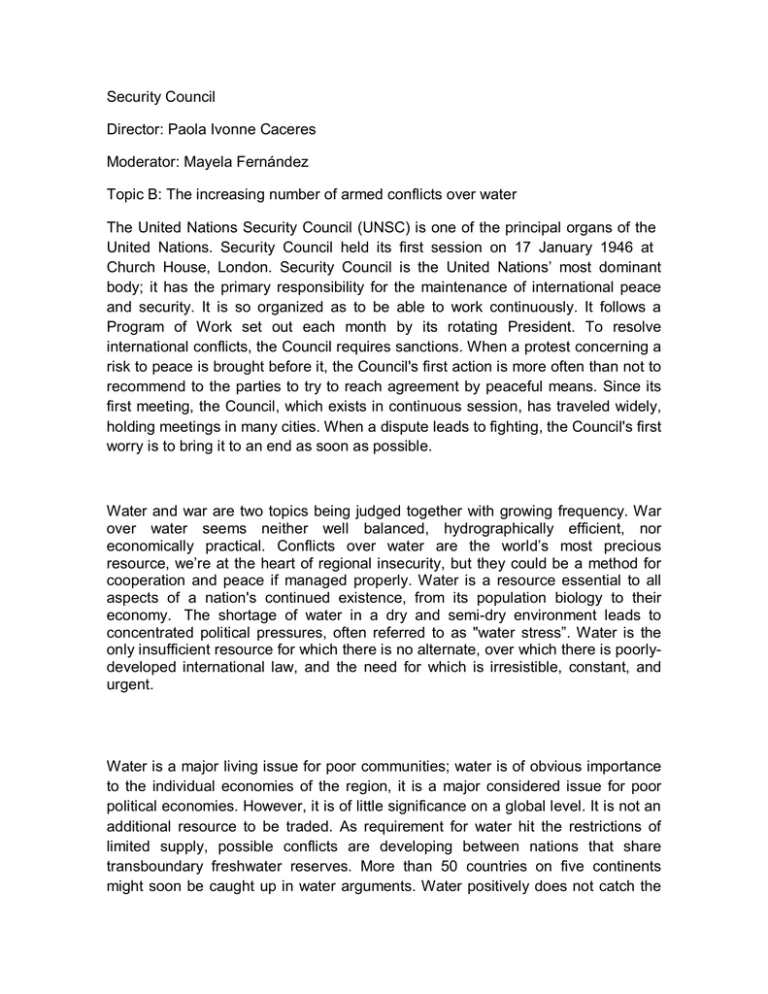
Security Council Director: Paola Ivonne Caceres Moderator: Mayela Fernández Topic B: The increasing number of armed conflicts over water The United Nations Security Council (UNSC) is one of the principal organs of the United Nations. Security Council held its first session on 17 January 1946 at Church House, London. Security Council is the United Nations’ most dominant body; it has the primary responsibility for the maintenance of international peace and security. It is so organized as to be able to work continuously. It follows a Program of Work set out each month by its rotating President. To resolve international conflicts, the Council requires sanctions. When a protest concerning a risk to peace is brought before it, the Council's first action is more often than not to recommend to the parties to try to reach agreement by peaceful means. Since its first meeting, the Council, which exists in continuous session, has traveled widely, holding meetings in many cities. When a dispute leads to fighting, the Council's first worry is to bring it to an end as soon as possible. Water and war are two topics being judged together with growing frequency. War over water seems neither well balanced, hydrographically efficient, nor economically practical. Conflicts over water are the world’s most precious resource, we’re at the heart of regional insecurity, but they could be a method for cooperation and peace if managed properly. Water is a resource essential to all aspects of a nation's continued existence, from its population biology to their economy. The shortage of water in a dry and semi­dry environment leads to concentrated political pressures, often referred to as "water stress”. Water is the only insufficient resource for which there is no alternate, over which there is poorly­ developed international law, and the need for which is irresistible, constant, and urgent. Water is a major living issue for poor communities; water is of obvious importance to the individual economies of the region, it is a major considered issue for poor political economies. However, it is of little significance on a global level. It is not an additional resource to be traded. As requirement for water hit the restrictions of limited supply, possible conflicts are developing between nations that share transboundary freshwater reserves. More than 50 countries on five continents might soon be caught up in water arguments. Water positively does not catch the attention of the global community, especially not of the Northern economies. It is an irony that the water pessimists are wrong but their pessimism is a very constructive supporting tool which can help the leader to change the eternally inter­ reliant confidence systems of the public and their politicians. Difficulties of defining control over surface water flows make international relations over the region's water resources very difficult to analyse. Control over water is not determined by traditional or formal international laws, although the May 1997 United Nations Convention on transboundary watercourses of the International Law Commission. The Permanent Representative of Turkey to the United Nations said that the pressure on water resources continued to strengthen as utilization of water had grown at more than twice the rate of population increase in the last century. The United Nations suggests that each person needs 20­50 liters of safe freshwater a day to make sure their basic needs for drinking, cooking and cleaning. According to the United Nations statistics by 2025, 1.8 billion people would live in countries or regions with absolute water insufficiency. In 2003 the United Nations established the creation of “UN­Water” as the inter­agency mechanism to deal with water­related issues. Its focus areas include water insufficiency, sanitation, trans­ boundary waters, climate change, and sponsorship and disaster reduction, among other things, thus the creation of UN­Water; it also has its own economic resources, receive funding from donors, and produce policy briefs and major documents as well as monitoring reports. Every year this conflict grows with frequency but as it grows we look for the best solutions to find the way of going ahead through this conflict, we’ve 3 supports very usual and as a result these 3 supports haven’t failed us in any situation; best practices and technical advice; knowledge and supervising; and policy direction and institutions. The ownership of a water resource enables water markets to be developed. Also it is important to start thinking about the pricing of water, in part because a pricing mechanism could be used to drive up efficiency. In 20 to 40 years, countries would have to produce the same amount of food as they did today, but with less water. Water governance reform would have to be performed. · Under which circumstances can those conflicts, if at all, spill over into armed violence? · How should your delegation be approaching the issue of “water wars”? · Is there any connection between fresh water and conflict, including violent conflict? · Are the risks of these conflicts growing in your country, and how can we reduce them? · Does your delegation go to war over water? · Who Will Export tomorrow’s Virtual Water? · At what price is the exporter going to increase the water? Resources http://globalpolicy.org/security­council.html http://www.un.org/Docs/sc/unsc_background.html http://www.transboundarywaters.orst.edu/publications/conflict_co op/ http://globalpolicy.org/component/content/article/198/32890.html http://www.unwater.org./statistics.html http://www.un.org/News/Press/docs/2009/gaef3266.doc.htm
